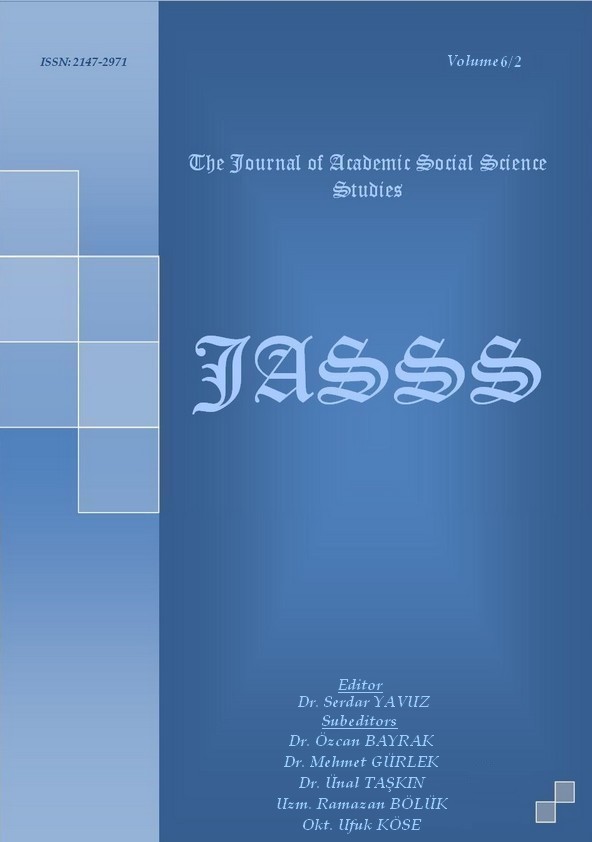PISA İLE TÜRKÇE ÖĞRETİM PROGRAMINDAKİ OKUDUĞUNU ANLAMA KAZANIMLARININ ÖRTÜŞME DÜZEYLERİNİN İNCELENMESİ
Author :
Abstract
Bu çalışmanın amacı, Türkiye’de uygulanan öğretim programlarının PISA uygulamalarında ölçülen becerilerin gelişimine ne derece uygun olduğunu ortaya koymaktır. Bu amaçla, “6-8. Sınıflar Türkçe Öğretimi Programı’nda yer alan okuma becerisi kazanımları, PISA testinde tanımlanan okuma becerisi düzeylerini kapsayacak şekilde oluşturulmuş mu?” sorusuna cevap aranmıştır. Bu çalışma betimsel olup doküman incelemesine dayalı olarak yapılmıştır. Çalışmada PISA 2009 Okuma Becerileri Yeterlik Düzeylerinin Özet Tanımları ile Türkçe Dersi Okuma Becerisi Kazanımları taranarak örtüşme düzeyleri açısından karşılaştırılmıştır. Yapılan karşılaştırmaya göre 2006 İlköğretim Türkçe Dersi (6, 7, 8. Sınıflar) Okuma Becerisi Kazanımlarının elli bir tane olduğu görülmüştür. Bunlardan yaklaşık on sekizinin PISA’nın alt seviyedeki okuduğunu anlama yeterliliklerine denk geldiği görülmüştür. Türkçe dersi okuma becerilerinin çoğunlukla alt düzey kazanımlarından olması dikkat çekici noktalardan biri olmuştur. Buna bağlı olarak da öğrencilerin bir üst düzeye çıkarılması sorun oluşturmuştur. Bununla birlikte Türkçe dersine ilişkin hazırlanan kazanımların genellikle ilkokul 3,4 ve 5.sınıf düzeyindeki kazanımlardan olduğu düşünülmektedir. Bu anlamda bu kazanımlarla 6, 7 ve 8. sınıfların bir üst bilişsel düzeye çıkarılması oldukça güç görünmektedir. Bu kazanımlara göre öğrencilerin temel okuryazarlık düzeyinde kaldıkları söylenebilir. Bu bağlamda Türkçe dersinin alt düzeydeki kazanımlarıyla PISA yeterlilikleri karşılaştırıldığında Türkçe dersi kazanımlarının çok genel ve gerçekleştirilebilirliklerinin göreceli olduğu sonucu ortaya çıkmaktadır. O halde Türkçe dersi kazanımları daha somut ve uygulanabilir bir duruma getirilmeli ve bu kazanımların yeniden yapılandırılarak PISA düzeyine çıkarılması yönünde gözden geçirilmesi gerekmektedir.
Keywords
Abstract
The aim of this study is to present to what extent the teaching programs in Turkey can promote the skills which have been measured in PISA applications. For this purpose, the question “do the reading comprehension objectives in the 6th – 8th grade Turkish teaching program overlap the proficiency levels defined in PISA test?” is tried to be answered. This study is descriptive and it is based on document analysis. In the study, the summary definitions of the “2009 PISA Reading Proficiency Levels” of and “Turkish Course Reading Proficiency Objectives” are reviewed and compared. According to the research, 18 of the 51 objectives of 2006 Primary (6th, 7th, 8th grade) Turkish Reading Proficiency Objectives are observed to overlap the PISA’s low level objectives. The fact that Turkish reading proficiency objectives’ mostly overlapping to the low-level objectives of PISA is remarkable here. In parallel with this, it has been always a problem to advance students to the up next level. It is also seen that, the objectives planned for the Turkish courses are thought to be usually composed that of 3rd, 4th and 5th grade levels. Therefore, it seems hardly possible for the 6th, 7th, and 8th grade students to advance to the next cognitive levels. According to those low-level objectives, it can be said that the students remain at the literacy level. In this sense, when compared to the PISA proficiency levels, the Turkish course objectives are too superficial and also their implementation levels are relative. Hence, the Turkish course objectives should be changed into more measurable, concrete and applicable state and they should be enhanced to the PISA level.





